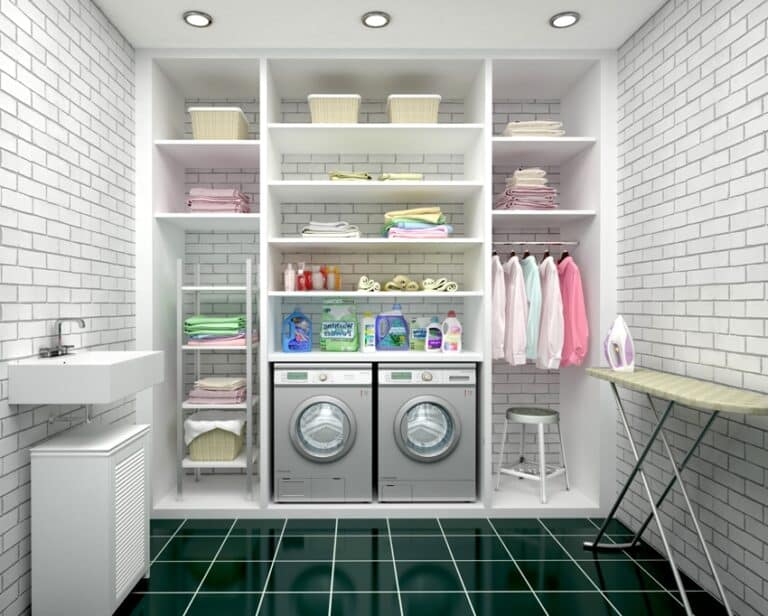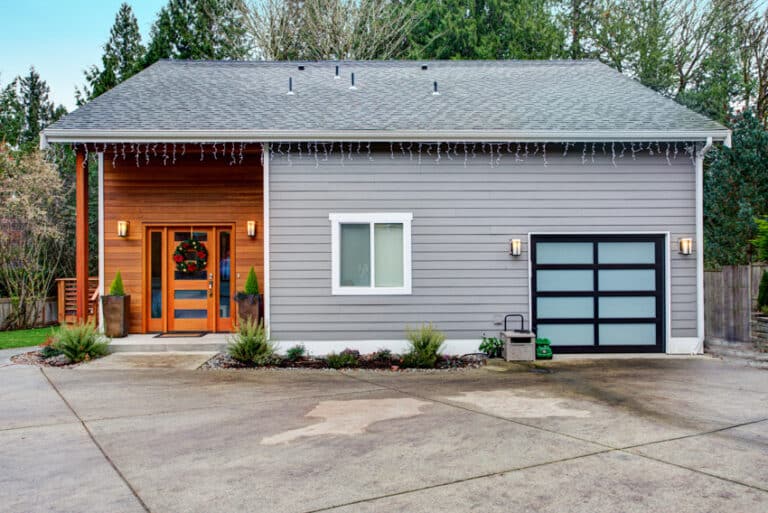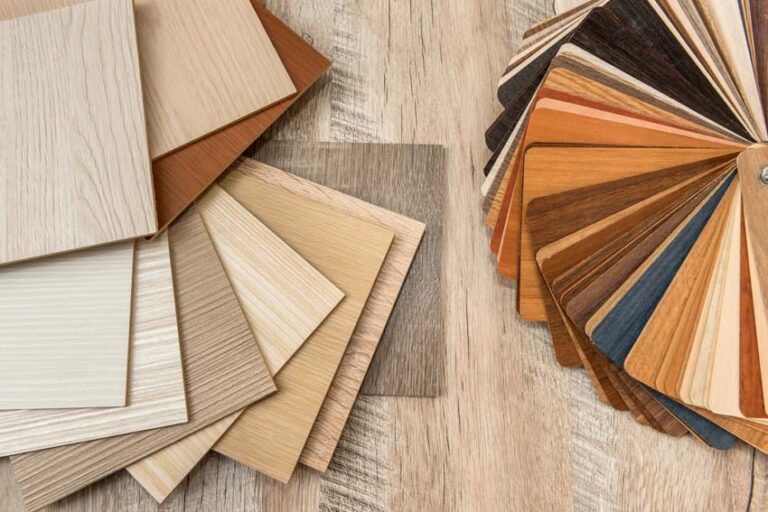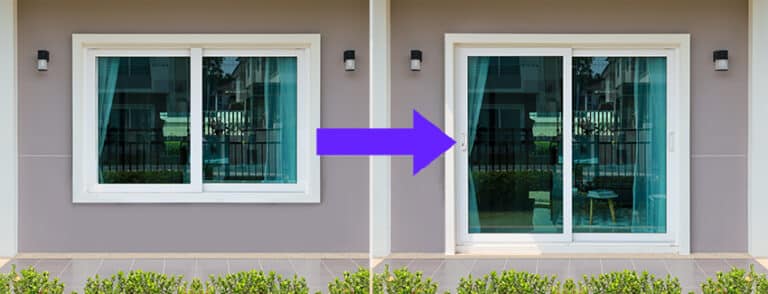Tar And Chip Driveway Pros And Cons
Renovating your driveway is an exciting task as any home-building project you may have. But this also means that you have a few decisions you need to make before getting your hands dirty and working on it. One of the decisions you have to make is the type of driveway to install in your home. And one of the choices for driveways is the tar and chip driveway.
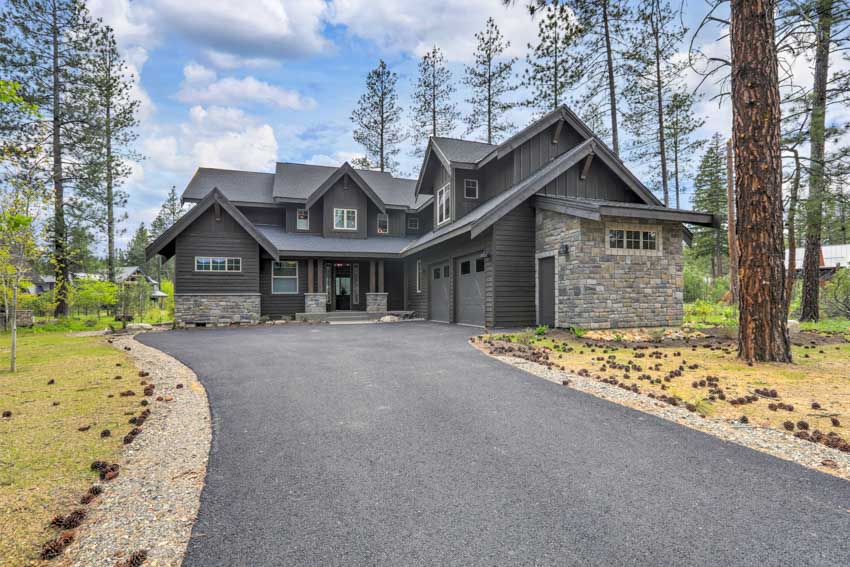
While a tar and chip driveway may not be the most familiar and popular, it is a good consideration you should check out.

Upload a photo and get instant before-and-after room designs.
No design experience needed — join 2.39 million+ happy users.
👉 Try the AI design tool now
What Is a Tar And Chip Driveway?
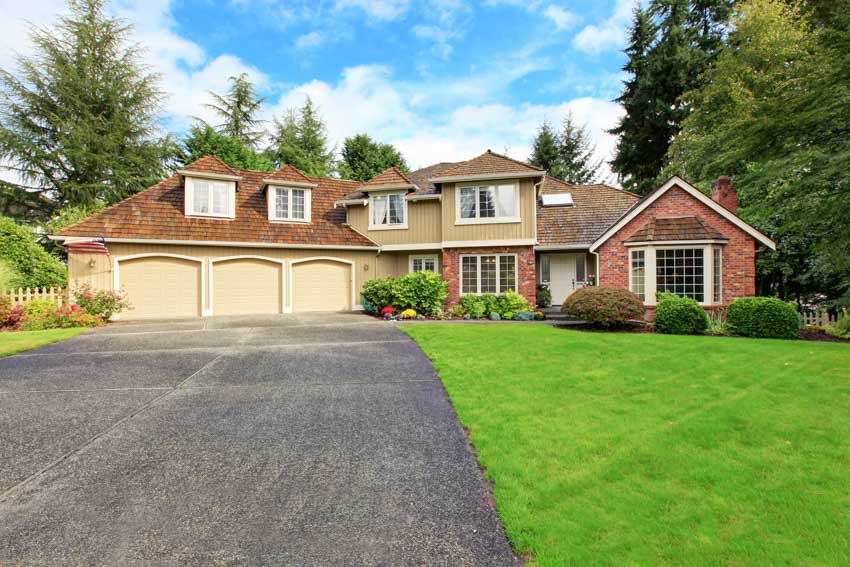
A tarred driveway was first developed by Scottish engineer John Loudon McAdam, which is why it was first known as the Macadam surface. It started as water-bound, which means it had problems with dust.
It evolved to its tar-based versions today, which is how the term “tarmacadam” came to be. This is actually where the term “tarmac” came from too.
An aggregate seal driveway consists of the following materials in compressed and successive layers over the surface:
• Gravel
• Hot liquid asphalt
• Loose stone
Tar or liquid asphalt is poured over a gravel base, which is what the “tar” part is. And since stone chips scattered on top is where the “chip” part came from. While it may have an appearance similar to asphalt, an aggregate seal driveway is installed differently.
Aggregate seal driveway can be a good option because people find the stone chips on top appealing. These stones can also come in a particular color with the driveway’s layers highly customizable.
Some of the colors you can easily identify aggregate seal driveway with include beige, orange, tan, and gray.
Pros and Cons of Tar-and-Chip Driveways
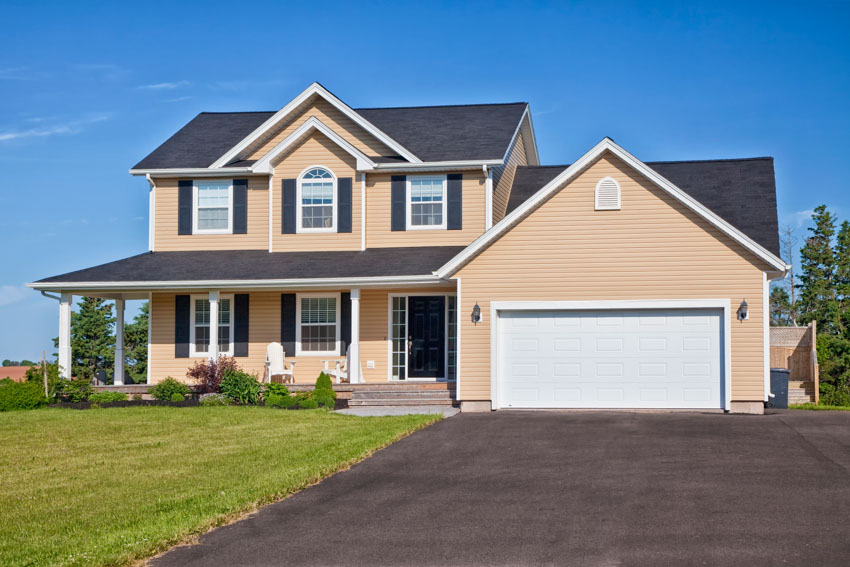
Pros:
Aggregate seal driveway has a long history of being used and applied successfully, in different areas from parking lots to rural roads. If you happen to choose tar and chip driveway for your renovation project, here are the advantages you can expect to have.
• More durable compared to gravel: Aggregate seal driveways do not need layering or sealing and can last for 12 years even without them.
• Low cost and affordable: While it may be more expensive than a gravel driveway, it is more affordable than most concrete materials, including asphalt driveways. And since asphalt gravel material does not need layering and sealing, you get to save some money in the end.
• Attractive in look with its natural aesthetics: This type of driveway is a good addition to your home’s landscaping and adds an earthy and natural vibe to it.
• Delivers good traction: When it comes to safety since the surface layer is rough and made from chip stones, asphalt gravel driveways have good traction capable of holding heavier loads. With this rough surface, expect a smooth and bump-free car ride.
• Requires easy maintenance: You can easily maintain the surface just by occasionally replacing displaced stones. You won’t even need experience with sealing since small cracks can easily be hidden with crushed stones.
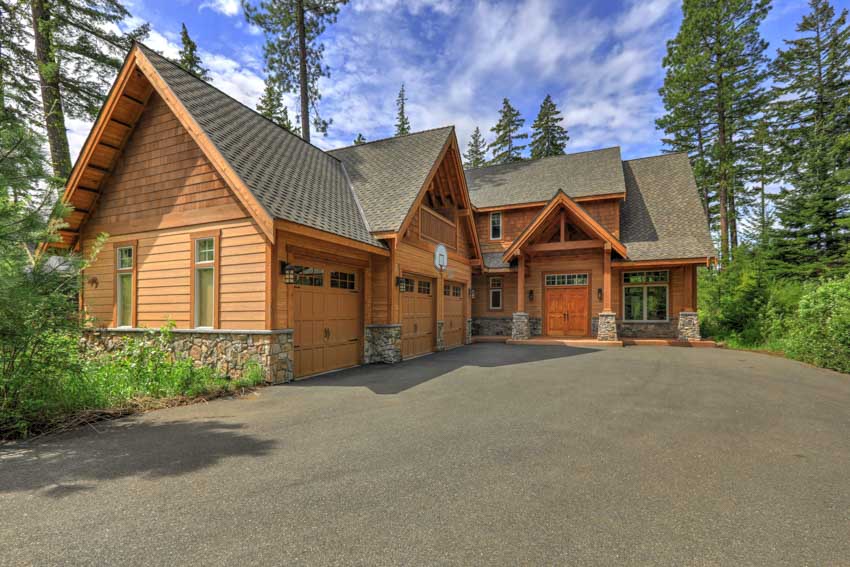
Cons:
Now that you know what benefits you might enjoy, you also need to consider the possible disadvantages you can encounter with seal coat driveways. Here are just a few of them.
• Difficult to install and contractors for it are difficult to come by: Since installing a seal coat driveway is a difficult task, you need professionals to accomplish this and they’re not easy to find.
• Snow plows and removal can be an issue: Seal coat drives are easily damaged by snowplows and removing snow can be difficult since it results in surface damage.
Tar and chip driveway is vulnerable to snow so if you’re located where snow is a constant, this might now be a good idea.
• Chip mess: The top layer of chip stones can turn messy over time with extensive use and in the process wear and tear of the materials.
Tar-and-Chip Surface Colors
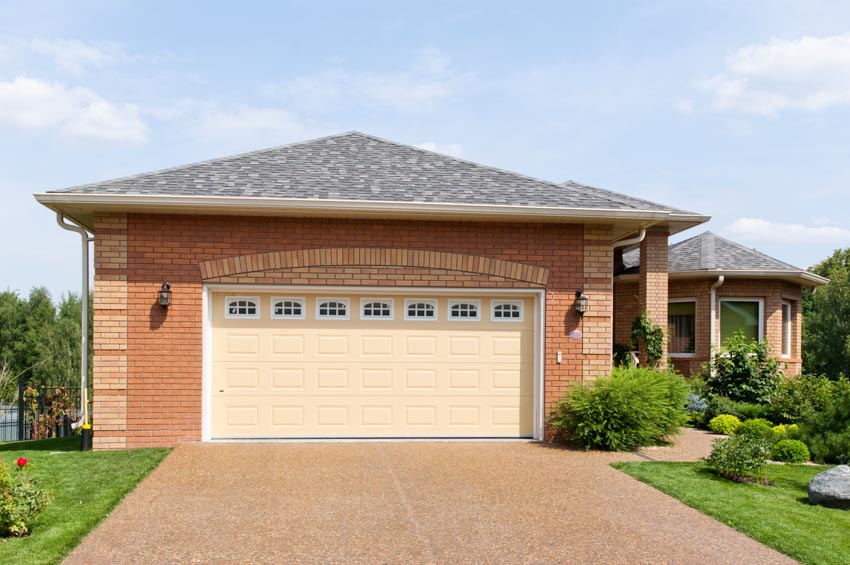
One of the benefits you can get from a tar and aggregate drive is the selection of colors you have. You can choose bold bright pink or a more subtle tan color, depending on the vibe you want your driveway to have.
One thing you have to remember though is that the color options you can skim through depend on the contractor you choose to hire. Expect that your options will be limited based on what’s available with your contractor.
If you choose to DIY though, you can have more color options. You can only be limited by the stores around you and the extent you are willing to take just to find the color you want your tar and chip drive to have.
Tar & Chip Costs
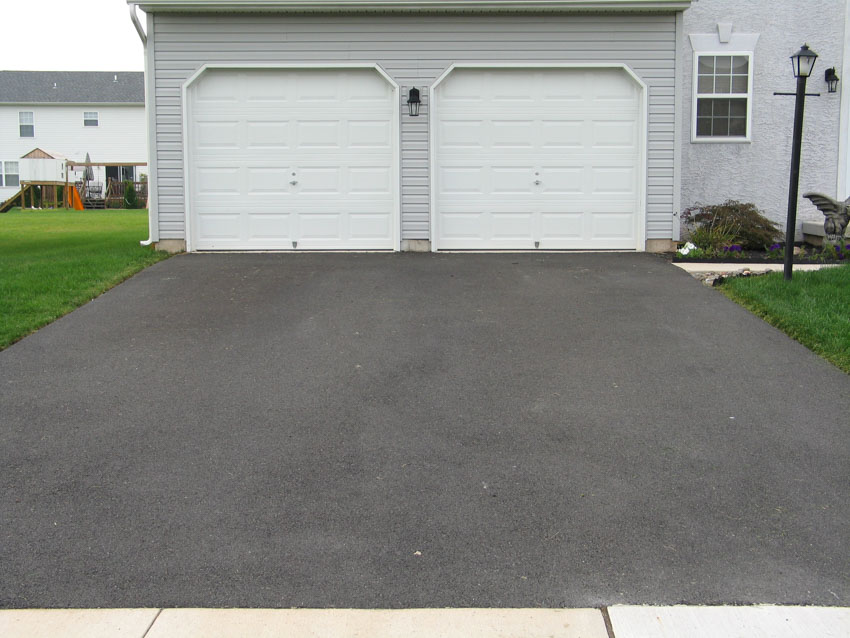
After learning about the tar and chip driveway pros and cons, you need to consider now its cost. The tar and chip driveway costs twice as much as its gravel version but less than an asphalt one.
You need to prepare around $2 to $5 per square foot for its installation, excluding other important factors that can affect the cost including the following:
• Size of your car parking area
• Average costs in your region
• Labor costs in your community
In total, though, and depending on these factors, a tar and aggregate drive path can cost between $700 to $2,900. The good thing about this type of car way is that it is low maintenance so you won’t need money for repair and maintenance.
How to Repair Tar & Chip Surfaces
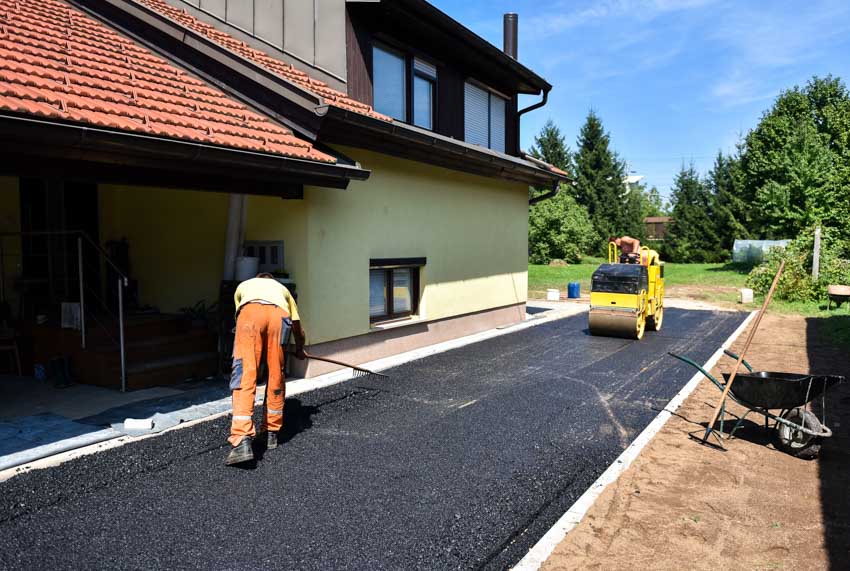
Maintenance is among the factors that will affect these tar and aggregate drive pros and cons. Maintaining this kind of drive is an inexpensive task, especially since you don’t need to repeatedly seal the surface compared to asphalt types of driveways.
Repair is also not frequently needed since small cracks tend to heal over time, especially during the hot season. You will need to renew the surface every 10 years in optimal condition.
One of the major factors that can damage a tar and aggregate drives are snowplows. Snow stuck on the surface can be cleared by snowplows, which can damage the pavement because of too much pressure. With this, skip using snowplows and go for a snowblower or shovel instead.
Can You Procedure Over Asphalt?
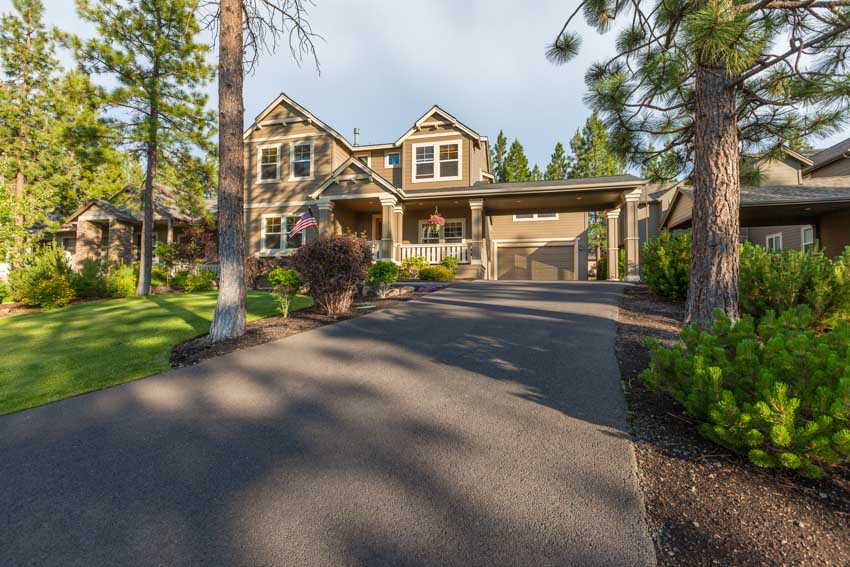
A tar and aggregate drive is different from an asphalt drive, but you can apply tar and aggregates for resurfacing the asphalt pavement.
This can extend the lifespan of the asphalt drive and transform it into tar and aggregates, making the maintenance and repair much less expensive.
Asphalt Vs Chip and Seal Driveway
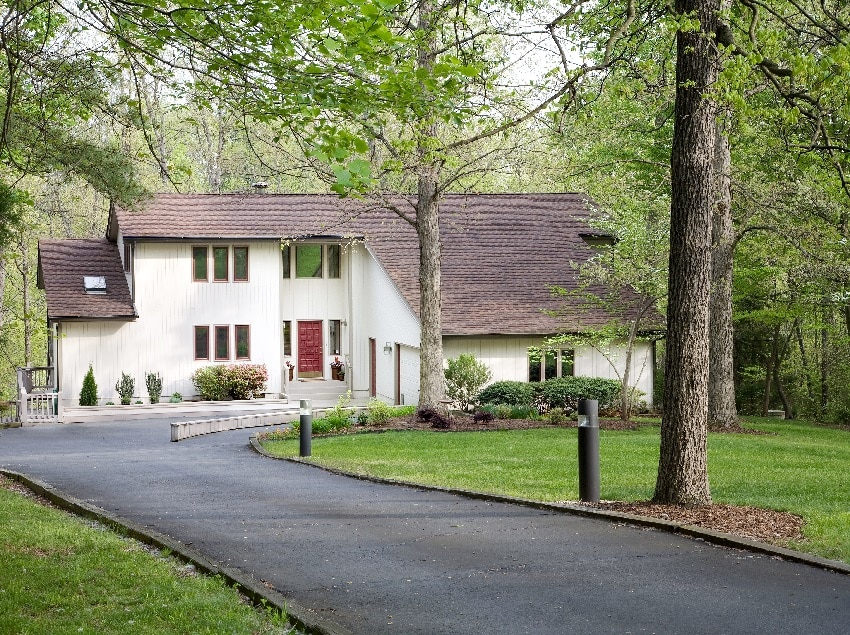
An asphalt private drive is different from a chip and seal driveway because of several factors. The former is a more common option for many people while the latter is rarer.
If you want to compare them with each other to have enough information to make a decision, here is the summary of their differences.
| Factors | Asphalt Driveway | Chip Seal Driveway |
| Color | Sleek black | Many color options |
| Durability | Durable but vulnerable to hear | Durable and weatherproof |
| Lifespan | Up to 30 years | 7 to 12 years |
| Load Support | Supports heavy load | Supports heavier load |
| Cost | Cheaper compared to most concrete materials | Cheaper compared to asphalt private drives |
| Cracking | Less susceptible compared to aggregate-coated private drives | Less susceptible compared to concrete and more compared to asphalt |
| Contractor/Installation | Easy to find contractors | Trouble finding contractors |
| Possible Issue: Oil Leaks | Dealing with oil is difficult, which is why it is a major consideration in the installation expense | Oil leaks are easily hidden under the chip stones |
If you are considering more than just aggregate materials, it is recommended that you compare them based on these factors and more if you find more.
Using this comparison process, you will have it easier to decide on the ideal choice for you.
See more related content in our article about sealing asphalt driveway pros and cons on this page.

